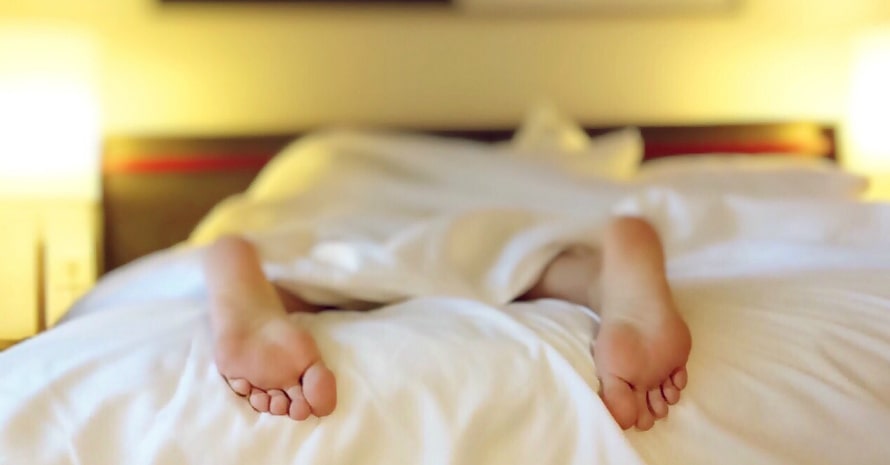We often complain about how difficult it is to get up in the morning, especially on Mondays or after a good party. When you are overworked, there is nothing wrong with a couple of hours of extra sleep. But if it’s hard for you to wake up even after ten alarms, you need someone to awaken you and want to sleep during the day, it’s time to worry.
As a person who suffered from lack of sleep and insomnia for a long time, I did not encounter the phenomenon of hypersomnia until I began to study the therapy and medicine of sleep professionally. Since then, I have devoted my blog to help people learn more about the nature of sleep, its disturbances, and methods for setting up a healthy sleep regime.
I usually tend to concentrate more on insomnia, as chronic lack of sleep is one of the main frustrations of modern people. However, after meeting a friend who suffers from hypersomnia, I feel a need to draw your attention to this issue as well. While sometimes, symptoms of hypersomnia seem to be laziness and whimsy, it can turn out to be a neurological disorder, which is almost impossible to deal with and challenging to recognize.
Essential Things on Hypersomnia You Need to Know

A hypersomnia definition is often confused with laziness. With this pathological drowsiness, a person feels sleepy no matter how much they slept. Many people find themselves in a state of lack of enough sleep or excessive fatigue at different times in their lives. However, not many of them know what is hypersomnia.
The problem is, a person with pathological drowsiness wants to sleep all the time he or she is awake. It can be a problem at work or school, as well as affect safety while driving. Depending on the cause that made you oversleep constantly, doctors usually divide ICD-10 hypersomnia into several types.
- Pathological hypersomnia. It may occur due to a nervous breakdown, as well as with the phenomenon of sleep. Pathological drowsiness is similar to narcolepsy, a disorder when a person experiences episodes of drowsiness during the day. However, individuals with narcolepsy often describe episodes of drowsiness as sudden “attacks” of sleep. With primary hypersomnia, the desire to sleep, on the contrary, grows gradually.
- Idiopathic or psychophysiological hypersomnia. It usually occurs in people who have a chronic lack of sleep or are in constant stress. It is accompanied by “sleepy intoxication,” a syndrome when a person is confused after awakening, can’t navigate in space, doesn’t remember anything, and behaves strangely.
- Post-traumatic hypersomnia. It is caused by the consequences of mental and physical injuries accompanied by stress. But its clinical manifestations are quite unpredictable, for example, “hysterical hibernation” hypersomnia def as a dream for an extended period with brief awakenings. Infectious brain lesions and other pathologies can threaten lethargic (continuous multi-day) sleep.
- Psychopathic hypersomnia. It is inherent in patients with neurological disorders. This condition is unique in that the individual can sleep for several days, and analysis shows that their brain is alert and active.
Hypersomnia Vs Narcolepsy: How It Differs?
Narcolepsy is inherent in daytime sleep, which is restless and does not bring rest. If comparing idiopathic hypersomnia vs narcolepsy, the latter is the most severe form of the disorder. A person suffering from narcolepsy is not able to control themselves and can fall asleep in any position anywhere.
People who have long been suffering from such a disorder, when feeling the approach of an attack, need to pre-search for a convenient place and take a pose that will allow them to sleep peacefully in comfortable conditions. When falling asleep and during sleep, the patient may experience hallucinations. Their muscles are so relaxed that sometimes after waking up, they are not able to move. Sometimes, even paralysis for an extended period occurs.
Define Hypersomnia: Constant Fatigue
My friend that suffers from this syndrome can sleep for fourteen hours and still wake up with a feeling of tiredness. It is precisely what ICD 10 hypersomnia manifests. This disease is characterized by the fact that during sleep, your body does not regain its strength. Throughout the day, you feel irresistible bouts of fatigue.
Imagine that most of the time, you feel as if for two nights in a row, you could not close your eyes because of insomnia. You almost always want to sleep, and in the morning, you need a lot of time to recover and really wake up.
Why Is It Difficult to Diagnose Hypersomnia?

As a rule, signs of hypersomnia symptoms appear between the ages of twenty to thirty years. Often, neurologists may mistakenly diagnose hypersomnia depression. To recognize the disorder, doctors need a polysomnographic examination, where during your sleep, they can establish the correct diagnosis using different sensors.
Why is it so hard to diagnose the condition? The fact is that the only well-defined symptom is fatigue. Besides, there are not many medical studies on this subject. At first, doctors suggest a thyroid disease or apnea (temporary respiratory arrest during sleep), and only after receiving a test result that does not confirm these hypotheses, they can diagnose hypersomnia.
To date, the causes of this sleep disturbance are largely unclear. It can even be transmitted by heredity when the cause was some shock from a collision with the environment. That is also a reason why it’s so hard to define a clear and effective idiopathic hypersomnia treatment.
Symptoms of ICD 10 Hypersomnia
The idiopathic hypersomnia symptoms are characterized by one main feature, a drowsy condition throughout the day. It occurs periodically with bursts or constantly with the standard duration of night sleep.
Idiopathic insomnia is not a common disease. It is diagnosed in about two out of a hundred thousand people. At the same time, idiopathic insomnia is often mistreated. The main symptoms of ICD 10 hypersomnia are:
- A constant need for sleep. A short sleep does not help to feel cheerful.
- A person may fall asleep during social activities, eating, or talking.
- Long night sleep, significantly exceeding the norm of 7-8 hours.
- Difficulty waking up (when you can oversleep despite the alarm clock).
- Unwillingness to get up and join the daily rhythm.
- Problems with concentration.
It is not about those cases when you finally decide to sleep off after a prolonged lack of sleep. It happens to everyone, but if you follow your regimen, it should not repeat often.
How Much Is It Too Much?
Most adults need 7–9 hours of nightly sleep daily. Some need 6-6.5 hours, but very few feel good if they sleep five hours or less. The same is at the other end of the line as some people need to sleep for nine hours. But if you sleep regularly for more than nine hours and still feel tired, it’s time to figure out what causes excessive drowsiness.
How to Treat Hypersomnia?
Hypersomnia treatment caused by an independent mental or nervous disorder involves the correction of the patient’s entire lifestyle. It includes the introduction of a strict regimen, physiotherapy, medications, vitamins, and psychotherapy. It should be noted that increased drowsiness can be a signal of the onset of schizophrenia, so it is important to conduct an in-depth study of the patient by a psychiatrist.
The doctor selects the medicines and their dosage individually for each patient, trying to prescribe those that have minimal side effects, but are of good efficacy. Usually, these are antidepressants, and stimulants, like Mazidol or Pemoline, that can eliminate daytime sleepiness. But to know how to treat such a condition as flumazenil hypersomnia, you need to see a doctor and find out the reason of your disease first.
If an overdose of some other medication causes the disorder, then detoxification therapy will be needed to clean your body. In this case, the patient should drink a large amount of fluid in combination with diuretics to remove drugs from the body.
Answering Questions on Hypersomnia
Below, you can find answers to the most common questions people have on hypersomnia. I hope that this information will help you to understand this condition better.
Why am I Sick? Common Hypersomnia Causes
The causes of hypersomnia are different. First of all, it can be because of fatigue, a rhythm disturbance of sleep-wakefulness that is often found in people with night work schedules or flights with a change of time zones. Among the possible causes of hypersomnia ICD 10, there is a need to mention a depression that makes the dream superficial and non-refreshing. Conversely, depression can result in excess of deep sleep with realistic dreams that wake the patient and disrupt the structure of their sleep.
On the other hand, hypersomnia occurs when taking special medications, such as ones with psych stimulating properties. The condition can be a symptom of a wide range of respiratory disorders, especially sleep apnea.
In patients with chronic respiratory failure, hypersomnia foundation may be a symptom of carbon dioxide accumulation and a drop in blood oxygen levels. The patient develops unexpected bouts of drowsiness, sometimes sudden, accompanied by a limp of the whole body in several diseases. Finally, hypersomnia can be a symptom of other diseases of the nervous system, both of inherent or acquired nature.
If it occurs as a reaction to taking certain medications, hypersomnia is considered a secondary disorder. The main causes are CNS (central nervous system) disorders that occurred after some stressful situations. Increased drowsiness can be caused by existing diseases, such as pathological conditions of the brain, impaired vascular activity, or infection.
How to Know You Have an Idiopathic Hypersomnia?
It is a rare and difficult-to-diagnose neurological disorder. People suffering from it have one common symptom, namely excessive daytime sleepiness. What is worse, in most cases, the disease is not treatable, and only several drugs temporarily eliminate the symptoms of it.
Idiopathic hypersomnia is the condition with an unknown cause. You are just continuously physically worn out. This condition results in an increased need for sleep and manifests itself in a constant feeling of fatigue.
To date, medicine has not exactly established the causes of this rare disease and does not offer effective treatment for it. Unfortunately, idiopathic hypersomnia disability significantly impacts our professional, social, and personal life. However, it is possible to reduce the symptoms with individually prescribed medications.
How Excessive Sleep and Depression Are Linked?
In adolescents and young people, excessive drowsiness can be a sign of depression. About 40% of young people under 30 suffering from depression are diagnosed with hypersomnia. Nevertheless, even older adults may experience hypersomnia during depression, especially women.
It is important to remember that in people with depression, sleep disorders can take many forms. For example, patients can suffer from insomnia and hypersomnia at the same time. Studies show that it occurs in 27% of cases, usually with severe depression, when people attempt suicide and are prone to drug addiction.
I recommend avoiding an acute lack of sleep and not to accumulate fatigue. Our body will, by all means, try to get the amount of rest it needs. If you regularly lack sleep, you will fall into a vicious circle in which you will sleep more from time to time to compensate for the loss. Such a broken regime is harmful to both physical and mental health.
Living With Hypersomnia: Summing Up
It can be difficult to ensure that family and close friends take your illness seriously because its symptoms are not obvious. When my friend tells someone about his hypersomnia, although people readily understand it, usually, they quickly forget about this circumstance. The disease severely affects social aspects of your life because you simply do not have the strength to go out and attend parties. You recover for a long time after them, and there is a fear of falling asleep during the event. However, without going out sometimes, you can feel lonely.
The symptoms that different people experience may not always coincide with you, but it is still useful to communicate with others. Interacting with those with similar problems is reassuring.
What would I advise to those who were diagnosed with hypersomnia? The main thing is not to lock yourself in and talk with loved ones. Another hint is to learn more about what hypersomnia means, listen to yourself, be aware of your abilities, and act when you have the strength to do so. In general, learning how to balance your desires and needs with your strengths is beneficial for everyone.
Do you suspect hypersomnia in you? Have you been diagnosed with this disorder? What do you do to stay chipper? Share your experience in the comments below.






